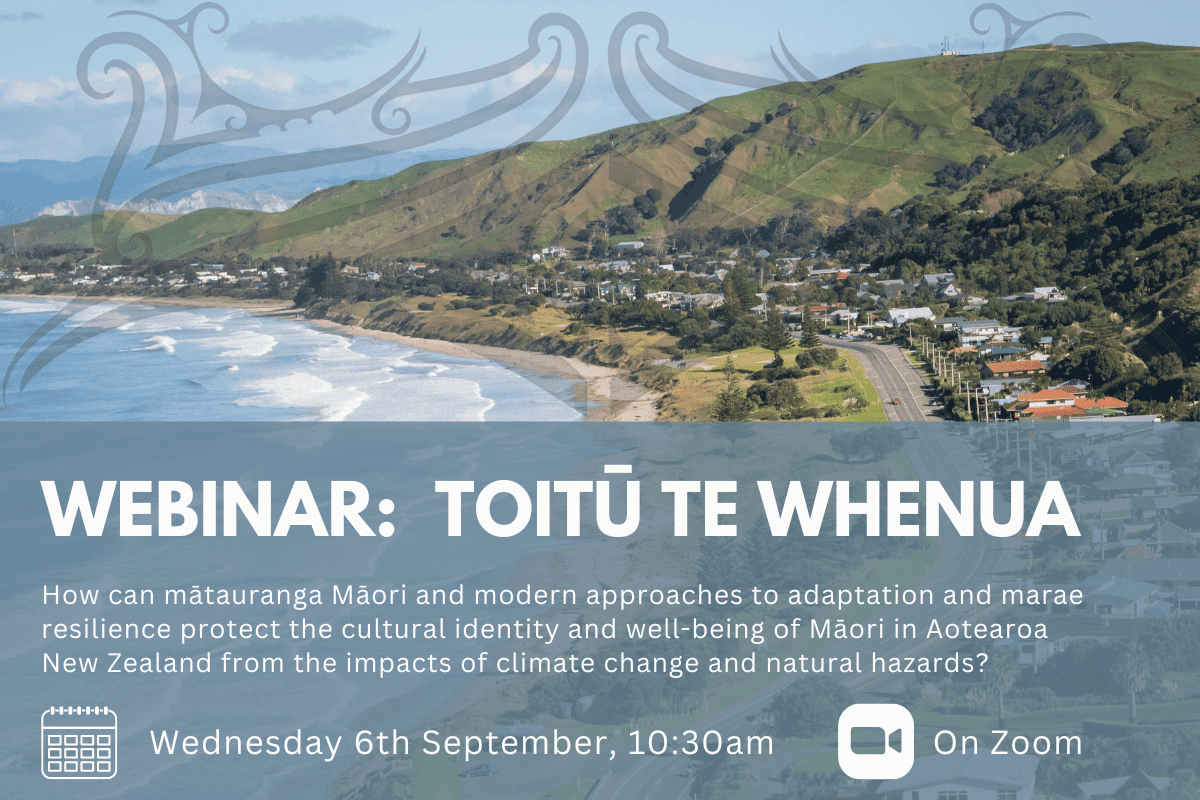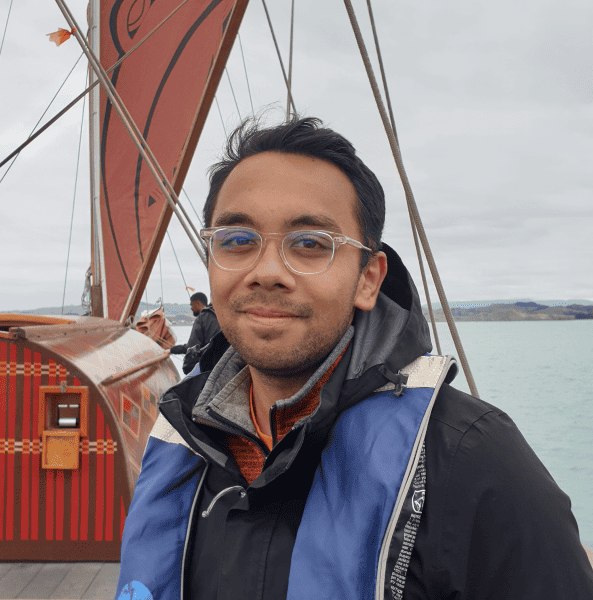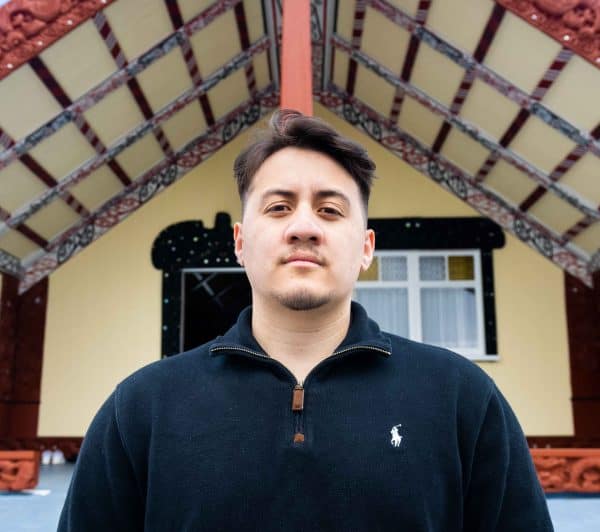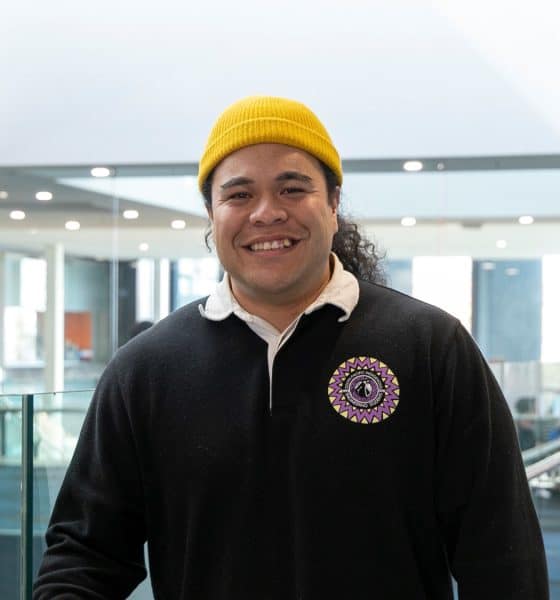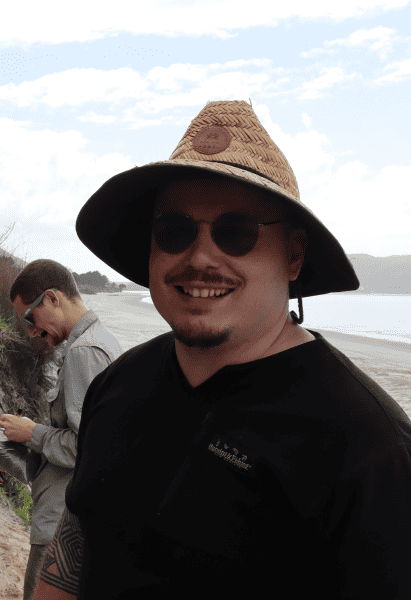Whatungarongaro te tangata, toitū te whenua
As people disappear from sight, the land remains
This whakataukī speaks to the importance of land. With the ever-increasing challenges brought on by climate change we look to our past and the lessons left behind by our tīpuna to ensure the whenua remains for generations to come.
Natural hazards and climate change pose a significant threat to the cultural identity and well-being of Māori in Aotearoa New Zealand. This webinar brings together researchers and PhD students from across Resilience to Nature’s Challenges National Science Challenge who are exploring mātauranga Māori and modern approaches to adaptation and marae resilience in the face of such challenges.
E ngā mana, e ngā reo, e ngā karangatanga maha, nau mai ki tēnei wānanga whakahirahira, ‘toitu te whenua’.
Wednesday 6 September, 10.30am-12noon
Webinar Presentations
Adaptation of pā to climate change – “Business as usual”
Adaptation in response to environmental and social changes is embedded in the fabric of Māori communities. This includes when our tūpuna navigated from Hawaiki to Aotearoa, through to the responses to Cyclone Gabrielle and will continue with the impacts of climate change. Adaptation is and will be ‘business as usual’ for many pā. In this kōrero, I will share a story of resilience and adaptation of my iwi Tūhourangi and whānau of Ngāti Rangitihi following their relocation after the 1886 Tarawera eruption. The lessons learnt following this event provide lessons in adaptation to help us plan to look after our pā and people with climate change.
Investigating marae infrastructure resilience in natural hazard events
The precarious exposure of marae to natural hazards and climate change pose a significant threat to the cultural identity and well-being of Māori communities across Aotearoa New Zealand. Marae geographical positioning presents a considerable natural hazard risk, amplified by climate change impacts. Despite their pivotal role in recent hazard event response, a large number of marae lack the necessary resources, support, and infrastructure to adequately prepare for and respond to these events, underpinning the research need. This research evaluates the vulnerability and resilience of marae infrastructure in the face of natural hazards and climate change across Aotearoa New Zealand.
Preserving Our Cultural Heritage: The Role of Archaeology in Studying and Recording Sites Before They Are Lost to Sea Level Rise
Sea-level rise and changing wave patterns are expected to have a significant impact on Aotearoa’s coast in the coming century and beyond. This webinar will explore how archaeologists are using modern methods to study coastal archaeological sites in Aotearoa in the face of sea level rise, and what we can learn from the past to prepare for the future.
The presentation will also cover the following topics:
- What is archaeology?
- Why is archaeology important in the face of climate change?
- How is sea level rise impacting archaeological sites?
- What can we learn from the past to prepare for the future?
